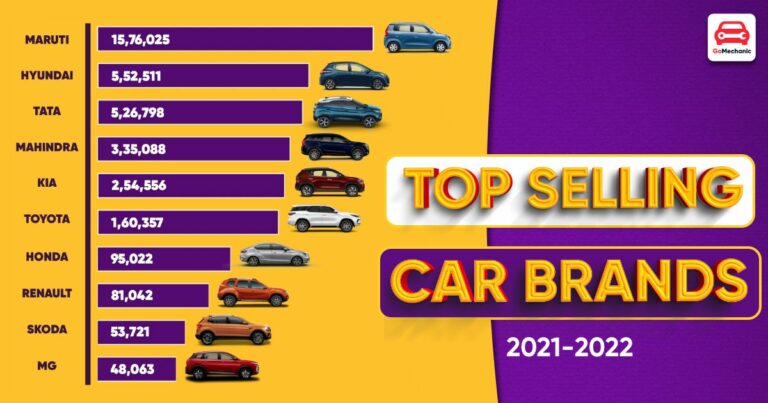What Car Brands Are American: A Comprehensive Guide
What Car Brands Are American: A Comprehensive Guide cars.truckstrend.com
The question "What car brands are American?" seems straightforward on the surface, but in today’s globally interconnected automotive industry, the answer is far more nuanced than simply looking at a badge. From iconic legacy manufacturers to innovative newcomers, the landscape of American car brands is rich, diverse, and constantly evolving. Understanding what truly constitutes an "American" car brand involves delving into ownership, manufacturing locations, design origins, and economic impact. This guide will explore the definitive American automotive brands, unpack the complexities of their identity, and provide insights for consumers seeking to support domestic industry.
The Enduring Pillars: America’s Big Three Automakers
What Car Brands Are American: A Comprehensive Guide
For over a century, three names have dominated the American automotive scene, shaping its culture, economy, and global reputation. These are the giants that laid the foundation for "American cars" as we know them.
Ford Motor Company
Founded by Henry Ford in 1903, Ford is arguably the most quintessential American car brand. It revolutionized manufacturing with the assembly line and made cars accessible to the masses. Ford remains fiercely independent, publicly traded, and headquartered in Dearborn, Michigan.
- Key Characteristics: Known for its rugged F-Series pickup trucks (America’s best-selling vehicle for decades), popular SUVs like the Explorer and Escape, and the iconic Mustang sports car. Ford has also made significant strides in electric vehicles with the Mustang Mach-E and the F-150 Lightning, demonstrating a commitment to future mobility while retaining its core American identity.
- Manufacturing: Ford operates numerous assembly plants across the United States, producing a high percentage of its vehicles domestically.
General Motors (GM)

General Motors, established in 1908, grew to become one of the world’s largest automakers, encompassing a vast array of brands. Headquartered in Detroit, Michigan, GM has historically been a titan of American industry.
- Key Characteristics: GM operates several prominent American brands under its umbrella:
- Chevrolet: The most widespread GM brand, offering a full range of vehicles from compact cars to SUVs, trucks (Silverado), and sports cars (Corvette).
- GMC: Specializes in trucks and SUVs, offering premium, professional-grade alternatives to Chevrolet models.
- Cadillac: GM’s luxury division, synonymous with American prestige and innovation.
- Buick: Positioned as an upscale mainstream brand, known for its comfortable sedans and SUVs, particularly popular in North America and China.
- Manufacturing: GM has a vast manufacturing footprint in the U.S., employing tens of thousands of American workers and producing many of its popular models within the country.
Stellantis (Formerly Chrysler Group)
The journey of Chrysler, one of America’s oldest automakers, is a testament to the dynamic nature of the global auto industry. Founded by Walter P. Chrysler in 1925, the company has undergone several international mergers and acquisitions. Today, it is part of Stellantis, a multinational automotive corporation formed from the merger of Fiat Chrysler Automobiles (FCA) and the French PSA Group. While Stellantis is headquartered in the Netherlands, its American roots run deep through the brands it owns and its significant operational presence in the U.S.
- Key Characteristics: Stellantis houses several iconic American brands:
- Jeep: Perhaps the most globally recognized American SUV brand, known for its off-road capability and adventurous spirit. Jeep vehicles are overwhelmingly designed and manufactured in the U.S.
- Ram: A dedicated truck brand spun off from Dodge, known for its powerful and popular Ram 1500, 2500, and 3500 pickup trucks.
- Dodge: Known for its performance-oriented cars (Charger, Challenger) and SUVs, often embodying a muscle-car heritage.
- Chrysler: Focuses on minivans (Pacifica) and some sedans, representing a more traditional American family vehicle segment.
- Manufacturing: Despite foreign ownership, Stellantis maintains extensive manufacturing and research facilities in the U.S., ensuring these brands continue to contribute significantly to the American economy and workforce.
The New Guard: Emerging and Niche American Automakers
Beyond the traditional Big Three, a new wave of American car brands has emerged, primarily focusing on electric vehicles and specialized segments, demonstrating the ongoing innovation within the U.S. auto industry.
Tesla
Founded in 2003 by Martin Eberhard and Marc Tarpenning, and famously led by Elon Musk, Tesla is unequivocally an American car brand. It revolutionized the automotive industry by popularizing electric vehicles (EVs) and pioneering advanced battery technology and autonomous driving features.
- Key Characteristics: Tesla designs, manufactures, and sells electric cars, battery energy storage, solar panels, and related products. Its primary manufacturing facilities ("Gigafactories") are located in the U.S., including Fremont, California, and Austin, Texas. Tesla’s success has inspired a new generation of American EV startups.
Lucid Motors
Headquartered in Newark, California, Lucid Motors is an American luxury electric vehicle manufacturer. Founded in 2007 (originally as Atieva), Lucid aims to redefine the premium EV segment with its advanced technology and design.
- Key Characteristics: Its flagship vehicle, the Lucid Air, boasts impressive range, performance, and luxurious interiors, competing directly with high-end luxury sedans. Lucid’s manufacturing plant is in Casa Grande, Arizona.
Rivian
Based in Irvine, California, Rivian is an American electric vehicle automaker and automotive technology company. Founded in 2009, Rivian focuses on electric adventure vehicles.
- Key Characteristics: Rivian gained significant attention for its R1T electric pickup truck and R1S electric SUV, designed for both on-road comfort and off-road capability. Rivian’s manufacturing facility is in Normal, Illinois, in a former Mitsubishi plant.
Niche and Commercial American Brands
While not producing passenger cars for the mass market, several other American companies are significant players in specific automotive sectors:
- Paccar (Kenworth, Peterbilt): An American corporation that manufactures heavy-duty commercial trucks. Kenworth and Peterbilt are iconic American truck brands.
- Nikola: An American company focused on hydrogen-electric and battery-electric trucks, aiming to disrupt the commercial trucking industry with zero-emission solutions.
Defining "American": A Complex Web
The concept of an "American car brand" is increasingly intricate due to globalization. Here’s a breakdown of factors that determine a vehicle’s "American-ness":
- Company Ownership: This is often the primary determinant. Ford and GM are undeniably American-owned. Stellantis, while multinational, has a significant American operational footprint and heritage through its brands. Tesla, Lucid, and Rivian are American-founded and owned.
- Headquarters Location: Where are the corporate decisions made, and where is the primary research and development conducted? Most core American brands have their HQs in the U.S.
- Manufacturing Location (Assembly Plant): Where is the vehicle physically put together? Many "foreign" brands (e.g., Toyota, Honda, BMW, Mercedes-Benz) operate large assembly plants in the U.S., employing thousands of American workers and producing vehicles with high domestic parts content. Conversely, some "American" brands might assemble certain models or components abroad.
- Parts Sourcing (Domestic Content): The percentage of a vehicle’s parts that are sourced from the U.S. and Canada. This is a crucial metric for economic impact. The American Automobile Labeling Act (AALA) requires a percentage of U.S./Canadian parts content to be displayed on a car’s window sticker.
- Research, Design, and Engineering: Where is the intellectual property created? Even if a car is assembled overseas, if its core design and engineering are done in the U.S., it retains a significant American identity.
- Economic Impact: The number of jobs created (direct and indirect), taxes paid, and investments made within the United States are strong indicators of a brand’s contribution to the American economy.
Why Choose an American Car? Practical Advice and Actionable Insights
Choosing an American car often comes down to a blend of practical considerations and personal values.
- Support for the U.S. Economy and Jobs: Buying vehicles from brands with significant U.S. manufacturing and R&D operations directly supports American jobs in factories, design centers, and related industries.
- Tailored to American Tastes: Historically, American brands have excelled at producing vehicles that resonate with U.S. consumers, such as large pickup trucks, spacious SUVs, and powerful muscle cars.
- Innovation: American brands are at the forefront of innovation in key areas, particularly in electric vehicle technology (Tesla, Rivian, Lucid) and autonomous driving.
- Legacy and Heritage: For many, buying an American car is a nod to a rich automotive history and a sense of national pride.
How to Identify an "American" Car:
- Check the VIN: The first digit of a Vehicle Identification Number (VIN) indicates the country of origin. "1," "4," or "5" typically signifies assembly in the U.S.
- Look at the Window Sticker: New cars in the U.S. are required to have a label showing the percentage of U.S./Canadian parts content and the final assembly point.
- Research Beyond the Badge: If supporting American jobs is your primary goal, research specific models. A Honda Accord built in Ohio might have a higher U.S. domestic content than some models from traditional "American" brands assembled abroad.
Challenges and Considerations
Despite a strong presence, American car brands face continuous challenges:
- Intense Global Competition: Foreign automakers offer high-quality, competitively priced vehicles.
- Supply Chain Disruptions: Global supply chains make it challenging to maintain consistent domestic parts content.
- Transition to EVs: The massive investment required for the shift to electric vehicles is a significant undertaking for all automakers.
- Perception vs. Reality: Educating consumers on the true "American-ness" of a vehicle in a globalized market remains a challenge.
Overview of Major American Car Brands
| Brand | Parent Company | Primary Focus/Status | Key Characteristics |
|---|---|---|---|
| Ford | Ford Motor Co. | Independent American Legacy Automaker | Iconic trucks (F-Series), SUVs, Mustang. Strong EV push. Wholly U.S.-owned and headquartered. |
| Chevrolet | General Motors | Broad Range, Mass Market, Legacy | Widest range of GM vehicles: cars, SUVs, trucks (Silverado), sports cars (Corvette). |
| GMC | General Motors | Premium Trucks & SUVs, Legacy | Upscale versions of Chevrolet trucks and SUVs. Focus on professional-grade vehicles. |
| Cadillac | General Motors | Luxury, Legacy | GM’s luxury division, known for prestige, comfort, and advanced technology. |
| Buick | General Motors | Upscale Mainstream, Legacy | Comfortable sedans and SUVs, popular in North America and China. |
| Jeep | Stellantis | Off-Road SUVs, Legacy (American Heritage) | Globally recognized for rugged, off-road capable SUVs. Deep American heritage, significant U.S. manufacturing. |
| Ram | Stellantis | Pickup Trucks, Legacy (American Heritage) | Dedicated truck brand, known for powerful and popular full-size pickups. Strong U.S. manufacturing. |
| Dodge | Stellantis | Performance Cars & SUVs, Legacy (American Heritage) | Focus on high-performance muscle cars (Charger, Challenger) and SUVs. |
| Chrysler | Stellantis | Minivans & Sedans, Legacy (American Heritage) | Traditional American family vehicles, primarily the Pacifica minivan. |
| Tesla | Tesla Inc. | Electric Vehicles, New American Innovator | Pioneer in EVs, leading in battery tech and autonomous driving. Wholly U.S.-owned, significant U.S. manufacturing. |
| Lucid | Lucid Motors | Luxury Electric Vehicles, New American Innovator | High-end luxury EVs with impressive range and performance. U.S.-owned and manufactured. |
| Rivian | Rivian Inc. | Electric Trucks & SUVs, New American Innovator | Focus on electric adventure vehicles (R1T truck, R1S SUV). U.S.-owned and manufactured. |
Frequently Asked Questions (FAQ)
Q1: Is Tesla truly an American car brand?
A1: Yes, absolutely. Tesla was founded in the U.S., is headquartered in Austin, Texas, and its primary design, engineering, and manufacturing facilities (Gigafactories) are located in the United States.
Q2: Is Jeep an American brand after the Stellantis merger?
A2: While its parent company, Stellantis, is a multinational corporation headquartered in the Netherlands, Jeep maintains deep American roots. Its design, engineering, and significant manufacturing operations are heavily concentrated in the U.S., and it is widely considered an iconic American brand by consumers.
Q3: Do foreign car brands build cars in the US?
A3: Yes, many do. Automakers like Toyota, Honda, BMW, Mercedes-Benz, Hyundai, and Kia have large manufacturing plants in the U.S., employing thousands of American workers and producing vehicles with substantial U.S. domestic content.
Q4: How can I find out where a specific car was made?
A4: For new cars, check the Monroney sticker (window sticker), which lists the final assembly point and the percentage of U.S./Canadian parts content. You can also check the vehicle’s VIN (Vehicle Identification Number); a VIN starting with "1," "4," or "5" indicates U.S. assembly.
Q5: What are the benefits of buying an American car?
A5: Benefits include supporting the U.S. economy and job growth, potentially benefitting from vehicles designed specifically for American tastes (e.g., trucks and large SUVs), and supporting domestic innovation in areas like electric vehicles and autonomous technology.
Conclusion
The question "What car brands are American?" invites a deep dive into the complex, globalized nature of the modern automotive industry. While the traditional "Big Three" — Ford, General Motors, and the American brands under Stellantis (Jeep, Ram, Dodge, Chrysler) — remain the bedrock of American automaking, a new generation of innovative companies like Tesla, Lucid, and Rivian are reshaping its future, particularly in the electric vehicle space.
Defining "American" goes beyond a simple badge; it involves considering ownership, manufacturing location, parts sourcing, and economic contribution. Ultimately, the American automotive landscape is a vibrant blend of storied heritage and cutting-edge innovation, continually adapting to global demands while striving to maintain its distinct national identity and economic impact. For consumers, understanding these nuances empowers them to make informed choices that align with their priorities, whether it’s supporting domestic jobs, embracing new technology, or simply owning a piece of automotive history.





